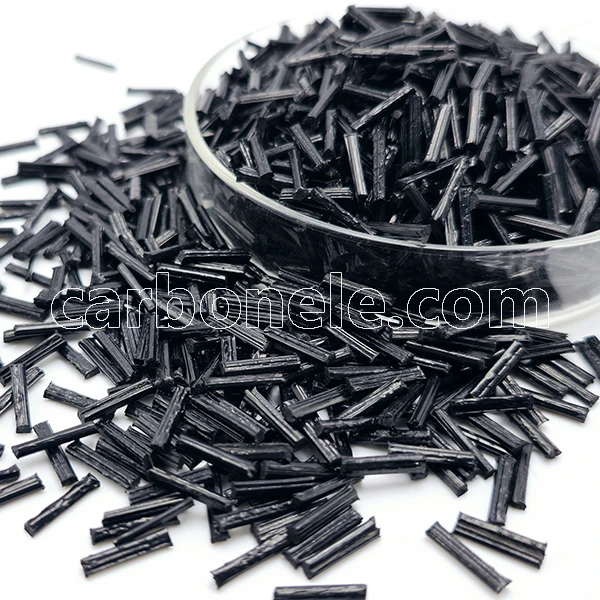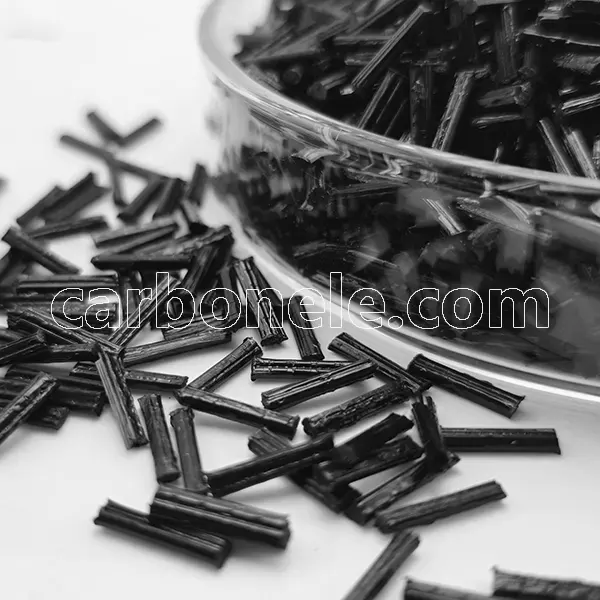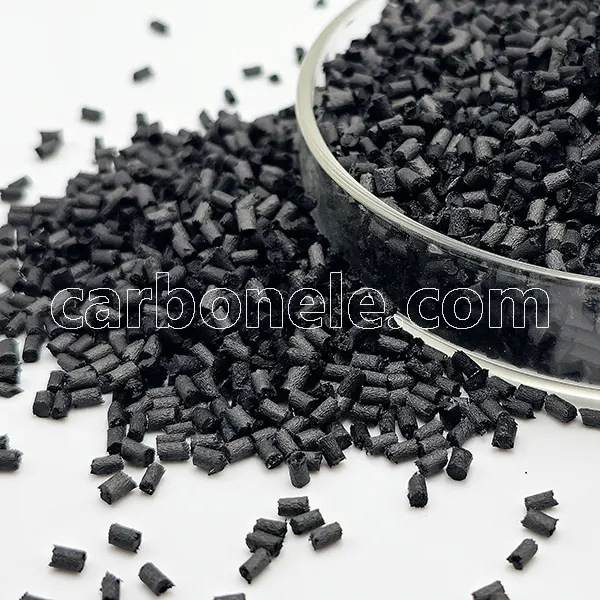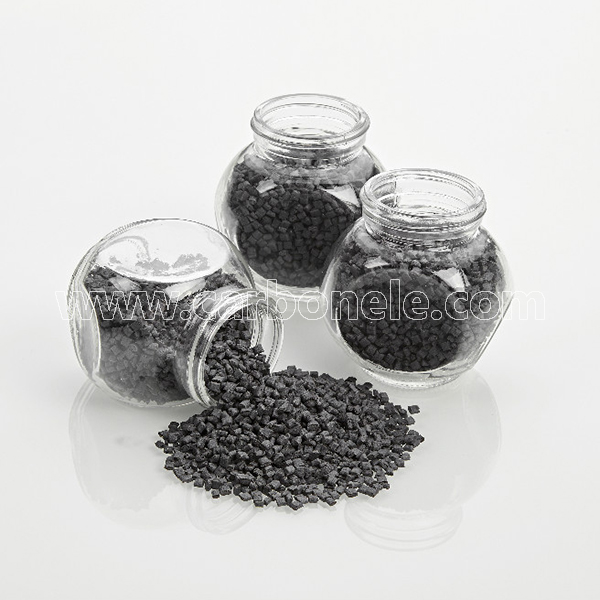
4 Key Performance Benefits Of PPS CF Composites - Carbon Fiber Compounds Manufacturer | Supplier
PPS CF Composites: Performance’s Symphony
The search for better, lighter, and more durable materials never stops in the always changing field of materials science. PPS CF compositions created by Carbon have revolutionised this sector. These composites mix the best of both worlds: the unrivalled strength and rigidity of carbon fibre with PPS’s great performance. This mix generates a material that is not only excellent but also adaptable and fit for many different uses. Deeper exploration of the four main advantages of PPS CF composites will help us to understand why they are transforming sectors like automotive to aerospace.

Thermoplastic CF/PPS composites
PPS CF Composites’ mechanical qualities
PPS CF composites have one of the best mechanical characteristics among others. Tensile strength, stiffness, and impact resistance of a material are much raised by the coupling of carbon fibres with the PPS matrix. Parts produced from PPS CF composites may therefore resist more loads and strains without deforming or failing. In sectors as automotive and aerospace, where mechanical qualities are vital, this benefit cannot be undervalued. PPS CF composites are produced in automotive applications, for instance, to create engine components, brackets, and structures that have to resist strong mechanical loads and hostile environments. Their mechanical qualities are so excellent that they can preserve structural integrity in such hostile conditions.
Additionally allowing weight reductions are PPS CF composites’ better mechanical qualities. Manufacturers may save a lot of weight by substituting these composites for conventional materials like metals. In aeronautical uses especially, where every gramme of weight saved may increase general performance and fuel economy, this is very crucial. PPS CF composites’ lightweight character does not compromise strength, hence they are perfect for structural components of aeroplanes and spacecraft.
PPS CF Composites’ Thermal Stability
PPS CF composites have also great thermal stability, which is another main advantage. PPS’s high melting point and capacity to preserve mechanical characteristics at high temperatures are well-known. These composites show much more thermal resilience when reinforced with carbon fibres, which qualifies for situations where temperatures vary greatly or approach extremes. In the automobile sector, where under-the-hood uses and engine components are subjected to high temperatures, this quality is very important.
Apart from great temperature performance, PPS CF composites provide outstanding dimensional stability. When the temperature changes, they do not bend or shrink noticeably to guarantee that the component keeps its exact dimensions and performance. Applications include electronic housings and connections that call for exact tolerances depend on this steadiness. PPS CF composites enable to increase the dependability and service life of the final product by preserving their form and characteristics throughout a broad temperature range.
PPS CF Composites’s Chemical Resistance
PPS CF composites withstand a broad spectrum of chemicals, including solvents, acids, and bases, very remarkably. The PPS matrix is inherently resistant to chemical assault hence its resistance is innate. Combining the inertness of carbon fibres with their mechanical qualities helps the resultant composite resist assault by strong chemicals without deteriorating or losing their integrity. For uses in chemically hostile situations, PPS CF composites are thus a great option.
The oil and gas sector is one prominent use as equipment and components there are often subjected to corrosive elements. Components such pump housings, valve components, and seals that must be constantly exposed to corrosive substances for long periods of time are produced using PPS CF composites. Their endurance and dependability guaranteed by their resistance to corrosion and chemical degradation helps to save maintenance expenses and downtime.
PPS CF composites’ chemical resistance also spans its performance in damp and humid surroundings. They preserve mechanical qualities and dimensional stability even in high humidity or wetness as they do not absorb moisture. This qualifies them for maritime use as well as other settings where moisture exposure is a consideration.
Enhanced Durability and Service Life of PPS CF
Selection of materials for each application mostly depends on durability and service life. PPS CF’s great mechanical qualities, thermal stability, and chemical resistance help them to shine in both spheres. These composites are designed to resist demanding environments and extended usage without obvious breakdown. Longer service life and fewer replacement or maintenance requirements follow from this.
Parts created from PPS CF composites, for instance, can survive regular usage in the automotive sector involving mechanical stress, chemical exposure from road salts and fluids, and high temperatures. This durability guarantees that components such structural brackets, electrical connections, and engine covers stay dependable and functioning all through the vehicle’s lifetime.
PPS CF composites’ improved durability and service life help the aerospace sector as well. Components in aeroplanes and spacecraft have to be dependable under very demanding circumstances like mechanical vibrations, temperature fluctuations, and high altitudes. PPS CF composites provide the required strength and stability to guarantee these parts stay safe and functional all throughout their service life.
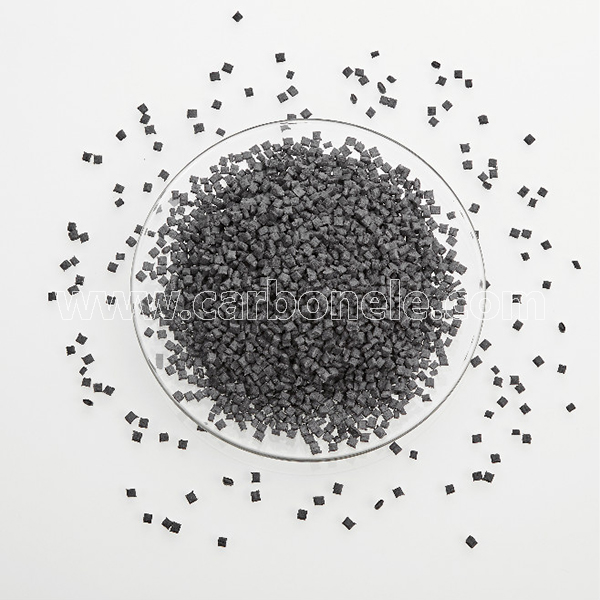
CF/PPS is more resistant to high temperature than thermosetting carbon
Carbon states
Originally Carbon, PPS CF composites provide a special mix of exceptional mechanical qualities, great thermal stability, great chemical resistance, and increased durability and service life. These advantages make them perfect for a great variety of uses in many different sectors. From automotive to aerospace, from oil and gas to electronics, from PPS CF’s high performance and adaptability driving invention and allowing the creation of sophisticated, dependable, and efficient products.
PPS CF composites are clearly playing a key part in determining the direction of engineering and design as we keep stretching the limits of materials research. Their capacity to satisfy the rigorous criteria of contemporary applications guarantees that they will be on top of materials innovation for many years to come. The fact that Carbon is dedicated to developing PPS CF composite technology emphasises even more the possibilities of these materials to transform sectors and raise the quality and performance of innumerable goods.
Feature Product
-
PA12 LCF30 for Drone Fuselages & Wings
What do you know about PA12 LCF30? PA12 ...
-
Competitive Price PA6 LCF30 Composites
What’s it? PA6 LCF30, which stands...
-
ABS CF10 Compound ABS 10%CF Thermoplastic Compo...
What’s ABS CF10? ABS CF10 refers t...








